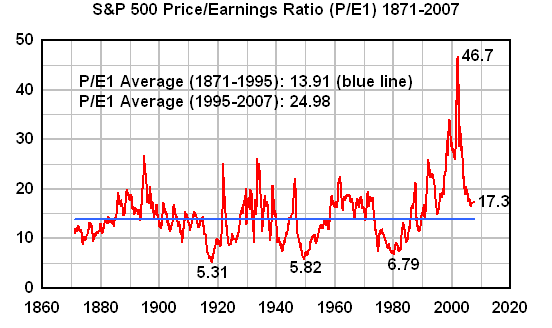mkrogh wrote:freddyv, you are right that my statement would be disproved if there is an index fund that can track sp500 indefinitely, but there is not.
I challenge you to show us an index fund that has tracked an index 50-60-70 years or more, and if there is, my statement is that it will lose at some point in the future.
You ignore the point about liquidity. You cannot just sell one company and buy another one. The selling and buying make the price move, and you will not hit the replacement price exactly.
You will sell for less than the index and buy for more, and the larger a portfolio, the bigger a liquidity problem.
Find us an index fund. It will be behind the index unless it is very new.
Read the following:
http://pages.stern.nyu.edu/~adamodar/Ne ... nFunds.htm
"Mr. Weiss studied performance for diversified U.S. stock funds over the 36 years through year-end 1997. The 109 funds that were around for the entire period gained an average 10.9% a year, compared with 11.6% for the S&P 500"
It certainly suggests that index funds lag the actual return of the index they track but that only makes sense because of the expenses involved. For many investors it still makes sense since they wouldn't otherwise have the time to properly manage their investments. But please note that these funds were tracked back to 1961, so that pretty much refutes your belief that no fund could exist that long; Aparently many can.
You seem to be taking a small thing (that there are expenses involved in tracking a fund) and saying that since this is true it is impossible to make money in the stock market. That doesn't make sense and reality doesn't back up your belief. The key is to not get too locked into a belief system, which I would suggest you have done, and to be a little bit ahead of the big changes.
I would suggest that your other argument, that every stock must eventually go to zero, simply shows a lack of perspective. We will all go to zero as will the sun and the earth, that does not mean that I can't enjoy the days that I have. The key, my friend, is to know when a company is going to go to zero and when it is going to go upwards.
In summary I can tell you that I have personally profited from stock funds over a period of decades and that I continue to profit from the stock market because I look at the big picture and consider the facts and history available to me. That every index fund will eventually fail may be true, that one should never invest in an index fund because of that is not. The question I now pose to you is this: how have you profited from the market in the past and how will you do so in the future?
--Fred
